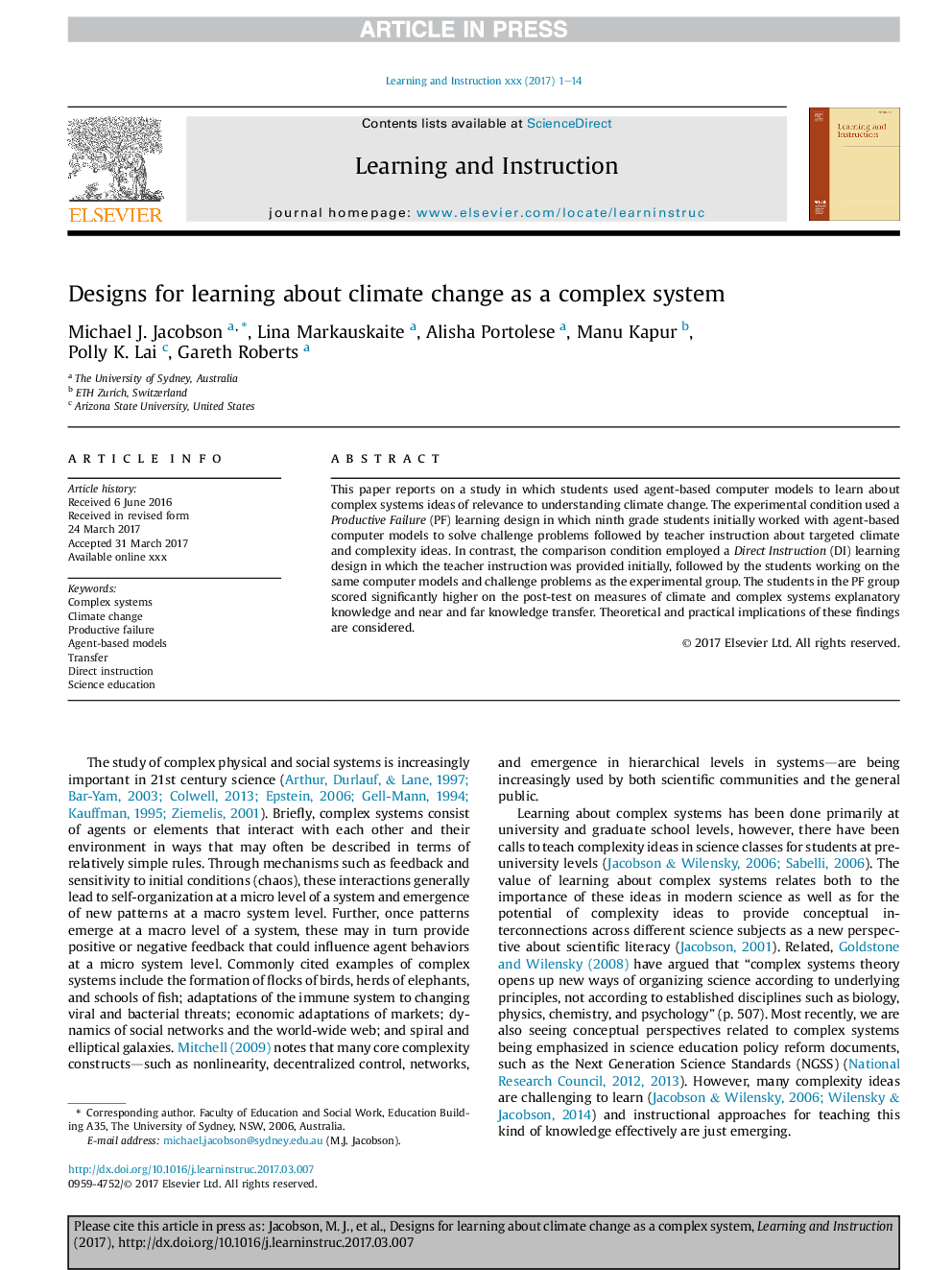| Article ID | Journal | Published Year | Pages | File Type |
|---|---|---|---|---|
| 4940196 | Learning and Instruction | 2017 | 14 Pages |
Abstract
This paper reports on a study in which students used agent-based computer models to learn about complex systems ideas of relevance to understanding climate change. The experimental condition used a Productive Failure (PF) learning design in which ninth grade students initially worked with agent-based computer models to solve challenge problems followed by teacher instruction about targeted climate and complexity ideas. In contrast, the comparison condition employed a Direct Instruction (DI) learning design in which the teacher instruction was provided initially, followed by the students working on the same computer models and challenge problems as the experimental group. The students in the PF group scored significantly higher on the post-test on measures of climate and complex systems explanatory knowledge and near and far knowledge transfer. Theoretical and practical implications of these findings are considered.
Related Topics
Social Sciences and Humanities
Psychology
Developmental and Educational Psychology
Authors
Michael J. Jacobson, Lina Markauskaite, Alisha Portolese, Manu Kapur, Polly K. Lai, Gareth Roberts,
